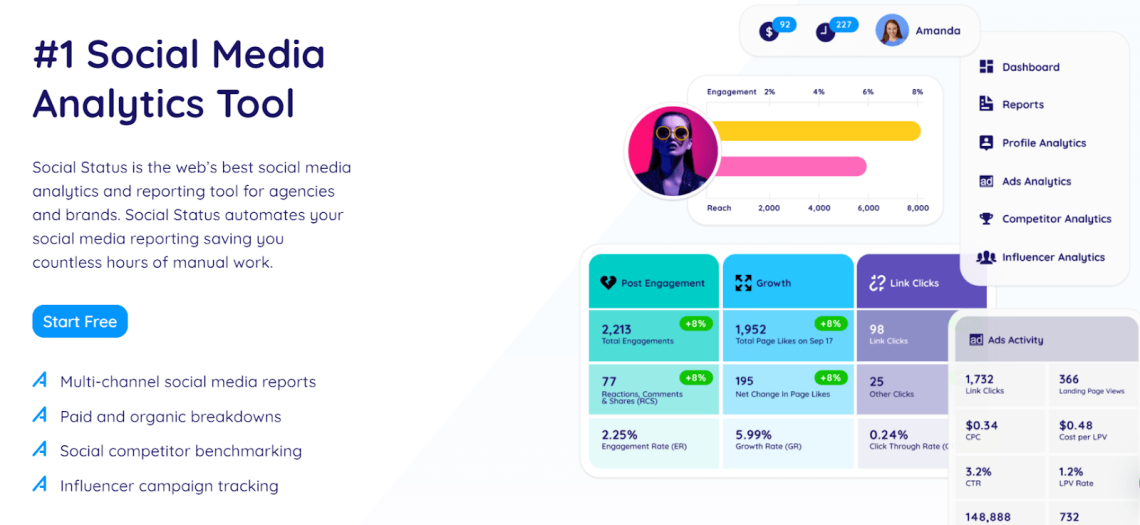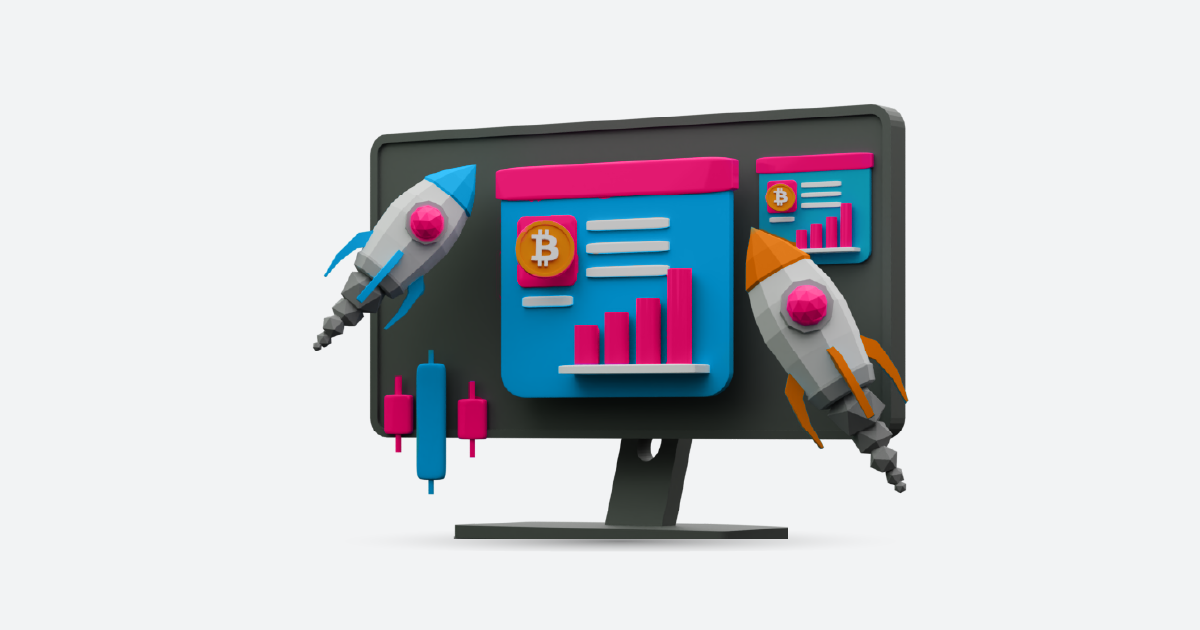In the ever-evolving digital landscape, social media has become an indispensable part of businesses marketing strategies. As companies strive to connect with their target audience, understanding social media data and gaining valuable insights is crucial. Social media data analysis involves the process of examining vast amounts of data collected from various platforms to make informed decisions, optimize marketing efforts, and foster meaningful engagements. This article delves into the world of social media data analysis tools, their benefits, and how businesses can utilize them to enhance their online presence.
Benefits of Social Media Data Analysis Tools

Social media data analysis provides numerous advantages for businesses seeking to thrive in the digital realm. By harnessing the power of data, companies can gain a competitive edge and create impactful strategies.
1. Understanding Customer Behavior
Social media platforms are a goldmine of customer data. Analyzing user interactions, preferences, and demographics enables businesses to understand their target audience better. Such insights allow companies to tailor their products and services to meet customer needs effectively.
2. Identifying Trends and Insights
Trends in the social media landscape change rapidly. Data analysis tools enable businesses to identify emerging trends and stay ahead of the curve. By recognizing popular topics and content formats, companies can craft relevant and timely marketing campaigns.
3. Improving Marketing Strategies
Data-driven decision-making is a cornerstone of successful marketing. Social media data analysis empowers businesses to evaluate the performance of their marketing efforts, identify loopholes, and optimize their strategies for better outcomes.
Popular Social Media Data Analysis Tools
Several cutting-edge tools cater to businesses’ social media data analysis needs. Let’s explore five popular options:
1. SocialBee
SocialBee offers comprehensive social media management, scheduling, and data analysis features. Its intuitive interface and detailed analytics reports make it an excellent choice for businesses of all sizes.
2. Sprout Social
Sprout Social is a robust platform that combines social media management with powerful data analysis capabilities. It provides in-depth insights into engagement, audience demographics, and post-performance.
3. Hootsuite
Hootsuite is a widely-used tool that allows users to manage multiple social media accounts and track performance metrics. Its user-friendly dashboard makes it ideal for beginners and professionals alike.
4. AIM Insights
AIM Insights specializes in social listening and sentiment analysis. It helps businesses understand brand perception and customer sentiment across various platforms.
5. BuzzSumo
BuzzSumo is a valuable tool for content analysis. It helps businesses identify the most shared and engaging content in their industry, enabling them to create more impactful posts.
How to Choose the Right Social Media Data Analysis Tool
Selecting the most suitable tool for your business requires careful consideration of specific factors.
1. Identify Your Specific Needs
Each business has unique requirements when it comes to social media data analysis. Define your objectives and look for tools that align with your goals.
2. Consider User-Friendliness and Interface
An intuitive user interface is essential to ensure that your team can navigate the tool efficiently. User-friendliness saves time and enhances productivity.
3. Analyze Data Sources and Compatibility
Check which social media platforms the tool supports and whether it can integrate with your existing systems. Compatibility is vital for seamless data analysis.
Using Social Media Data Analysis for Market Research
Market research is vital for understanding industry dynamics and consumer preferences. Social media data analysis plays a pivotal role in this area.
1. Conducting Competitor Analysis
Analyzing competitors’ social media activities provides insights into their strategies, content performance, and audience engagement. These findings help businesses refine their tactics.
2. Tracking Brand Sentiment
Monitoring mentions and comments about your brand on social media help gauge brand sentiment. Positive sentiment reinforces successful strategies, while negative sentiment indicates areas for improvement.
3. Assessing Campaign Performance
Analyzing the performance of marketing campaigns on social media allows businesses to measure their success against predefined goals. It helps identify high-performing content and optimize future campaigns.
Utilizing Social Media Data Analysis for Content Strategy
Compelling content is the backbone of a successful social media presence. Data analysis tools enhance content strategy in several ways.
1. Identifying Content Preferences
Understanding the type of content that resonates with your audience is crucial. Data analysis reveals the most engaging content formats, enabling businesses to create content that drives results.
2. Optimizing the Posting Schedule
Knowing the peak times when your audience is most active allows for strategic scheduling of posts. Optimizing the posting schedule increases the likelihood of reaching more users.
3. Evaluating Engagement Metrics
Analyzing likes, shares, comments, and click-through rates provides valuable insights into content performance. Businesses can focus on content that garners the most engagement.
Social Media Data Analysis for Customer Support
Social media is not only a marketing tool but also a channel for customer support and interaction.
1. Monitoring Customer Feedback
Customers often share feedback and complaints on social media platforms. Analyzing this data helps businesses address concerns promptly and enhance customer satisfaction.
2. Improving Response Times
Timely responses to customer inquiries are crucial for maintaining a positive brand image. Data analysis helps businesses track response times and make improvements if necessary.
3. Personalizing Customer Interactions
Social media data analysis aids in understanding individual preferences and behaviors. This information can be used to personalize interactions, making customers feel valued.
Overcoming Challenges
While social media data analysis offers valuable insights, there are challenges to consider.
1. Dealing with Data Overload
The sheer volume of data generated on social media can be overwhelming. Effective analysis tools should filter and present relevant information.
2. Ensuring Data Accuracy and Reliability
Data accuracy is essential for making informed decisions. Analytical tools should have mechanisms to ensure the reliability of the data they provide.
3. Addressing Privacy Concerns
As data collection increases, so do privacy concerns. Businesses must handle customer data responsibly and comply with data protection regulations.
Future Trends
Social media data analysis is poised for further advancements.
1. AI and Machine Learning Advancements
Artificial intelligence and machine learning technologies will enhance data analysis, making it more efficient and insightful.
2. Integration with Business Intelligence
Integrating social media data analysis with broader business intelligence tools will provide a comprehensive view of the organization’s performance.
3. Real-time Data Analysis
Real-time analysis will become increasingly crucial, enabling businesses to respond promptly to emerging trends and issues.
Conclusion
Social media data analysis tools have become indispensable for businesses looking to thrive in the digital age. By harnessing the power of data, companies can gain valuable insights, refine their marketing strategies, and create meaningful engagements with their audience. Embracing social media data analysis is a key step toward staying ahead of the competition and achieving success in the dynamic world of social media.
Are you ready to take your social media game to the next level? Request a demo from AIM Technologies today and discover how our cutting-edge data analysis tools can empower your business. Don’t miss out on the opportunity to unlock the full potential of your social media marketing efforts.
FAQs
What is social media data analysis?
- Social media data analysis refers to the process of examining data collected from social media platforms to gain insights, identify trends, and make informed decisions.
Why is social media data analysis important for businesses?
- Social media data analysis helps businesses understand customer behavior, improve marketing strategies, and gain a competitive edge in the digital landscape.
Which social media data analysis tool is best for beginners?
- Hootsuite is an excellent choice for beginners due to its user-friendly interface and ease of navigation.
How can social media data analysis be used for market research?
- Social media data analysis aids in conducting competitor analysis, tracking brand sentiment, and assessing the performance of marketing campaigns.
What are the challenges of social media data analysis?
- Challenges include dealing with data overload, ensuring data accuracy, and addressing privacy concerns.




